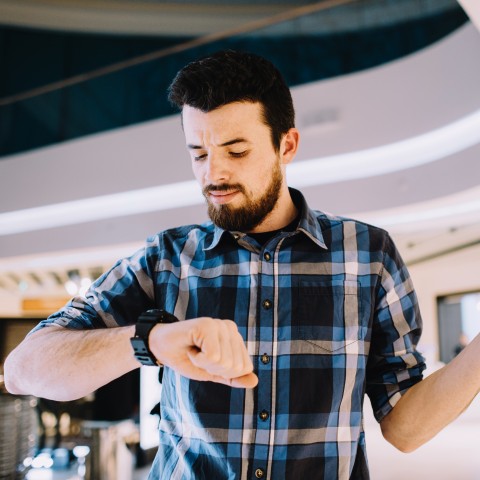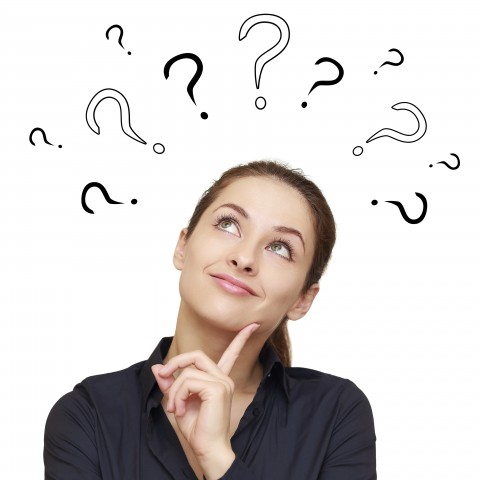
Adverbs bring some clarity, fun, and emotion to a language. Could you imagine a language without them? It would surely make everything much more ambiguous and boring. We need adverbs to form phrases, to express our emotions, to give some perspective, and to spice up our conversations.
Luckily, there are plenty of Dutch adverbs to choose from. From adverbs describing time and frequency, to those useful adverbs that help you connect your thoughts. Through these fun adverbs, you’ll be able to explain yourself better and more clearly express your mood, opinions, and feelings.
Are you already intrigued? Then let’s start with a short guide on the use of Dutch adverbs. After this, we’ll continue with a useful Dutch adverbs list with 100 must-know adverbs. Enjoy!
 Table of Contents
Table of Contents
- Dutch Adverbs User Guide
- Adverbs of Time
- Adverbs of Frequency
- Adverbs of Place
- Adverbs of Manner
- Adverbs of Degree
- Adverbs to Connect Thoughts
- How DutchPod101 Can Help You Learn More Dutch
1. Dutch Adverbs User Guide
1- What are Adverbs?
Adverbs give more information about the words they’re connected to. They work together with a verb, an adjective, or another adverb, to change its meaning or to make its meaning more precise. Adverbs can change the tone of the sentence completely or set another mood.
So let’s show you some examples to help you understand the Dutch grammar of adverbs:
Combination of an adverb and a verb:
- Ik ga morgen naar school. (“I will go to school tomorrow.”)
Here, the adverb morgen (“tomorrow”) defines the verb gaan (“to go”).
Combination of Dutch adjectives and adverbs:
- Ik ben zeer goed in het leren van talen. (“I am very good at learning languages.”)
The Dutch adverb zeer (“very”) influences the word goed, which is an adjective.
- →Learn more about the difference between adverbs and adjectives.
- →Would you like to learn more Dutch adjectives? Have a look at this list of the 50 Most Common Adjectives. Want to take it a step further? Let’s have some fun and see Which Adjective Describes Your Personality Best.
Combination of an adverb with another adverb:
- Later deze week reis ik naar Nederland. (“Later this week, I travel to the Netherlands.”)
Here, you can see how the adverb later (“later”) and the adverb deze week (“this week”) define each other.

2- Dutch Adverb Order
For the Dutch adverb placement, it’s very common to place the adverb as closely as possible after the verb. For example:
- Ik spreek zachtjes. (“I speak softly.”)
However, if you’d like to emphasize the adverb, you can put it at the beginning of the sentence:
- Bovendien, heb ik al plannen. (“Moreover, I already have plans.”)
Do you want to use more than one adverb? Then the following Dutch adverb placement is most common:
Time-Manner-Place
So adverbs of time come before adverbs of manner, and adverbs of manner come before adverbs of place.
Now that you’ve learned something about the Dutch grammar of adverbs, let’s start with our Dutch adverbs list and dive into the different adverbs. In the following sections, we’ll be covering adverbs in Dutch related to time, frequency, place, manner, degree, and those special thought connectors.
2. Adverbs of Time
Adverbs of time will tell you when something takes place.

1.
| Gisteren “Yesterday” | Gisteren was ik erg moe. “Yesterday, I was very tired.” |
2.
| Deze week “This week” | Deze week begin ik met mijn nieuwe baan. “This week, I start with my new job.” |
3.
| Straks “Later” | Ik bel je straks. “I’ll call you later.” |
4.
| Vandaag “Today” | Mijn zus gaat vandaag trouwen. “My sister gets married today.” |
5.
| Morgen “Tomorrow” | Ik kan niet werken morgen. “I can’t work tomorrow.” |
6.
| Dan “Then” | Hij komt dan naar huis. “He then comes home.” |
7.
| Later “Later” | Later als ik groot ben… “Later, when I grow up…” |
8.
| Vanavond “Tonight” | Ik heb een date vanavond. “I have a date tonight.” |
9.
| Nu “Right now” | Kom nu naar huis. “Come home right now.” |
10.
| Gisteravond “Last night” | Gisteravond gingen we laat slapen. “Last night we went to bed late.” |
11.
| Vanmorgen “This morning” | Vanmorgen kon ik mijn bed niet uit komen. “This morning, I couldn’t get out of bed.” |
12.
| Volgende week “Next week” | Volgende week reizen we naar Amsterdam. “Next week, we will travel to Amsterdam.” |
13.
| Al “Already” | Ik wacht al een uur op je. “I’ve already been waiting for you for an hour.” |
14.
| Onlangs “Recently” | Ik ben onlangs oma geworden. “I recently became a grandmother.” |
15.
| De laatste tijd “Lately” | De laatste tijd kan ik niet goed slapen. “Lately, I can’t sleep very well.” |
16.
| Snel “Soon” | Ik zie je snel. “I will see you soon.” |
17.
| Meteen “Immediately” | Ik duik meteen in het zwembad. “I immediately dive into the pool.” |
18.
| Nog “Still” | Hij is nog aan het bellen. “He is still calling.” |
19.
| Nog steeds “Still” | Ik ben nog steeds verliefd op jou. “I am still in love with you.” |
As you can see, nog and nog steeds both mean “still.” However, nog steeds in general refers to a longer time, so something that continues over a longer time period.
20.
| Geleden “Ago” | Zeven jaar geleden ging ik naar Argentinië. “Seven years ago, I went to Argentina.” |
- →Make sure to visit our vocabulary list on Talking about Time and discover the pronunciation of various Dutch adverbs of time.
3. Adverbs of Frequency
Adverbs of frequency will give you some information on how often something takes place.
21.
| Bijna “Almost” | Ik ga bijna nooit uit eten. “I almost never eat out.” |
22.
| Altijd “Always” | Zaterdag ga ik altijd winkelen. “I always go shopping on Saturday.” |
23.
| Vaak “Often” | Hij is vaak boos. “He is often angry.” |
24.
| Gewoonlijk “Usually” | Ik werk gewoonlijk tot zes uur. “Usually, I work until six.” |
25.
| Soms “Sometimes” | Ik kijk soms het nieuws. “I sometimes watch the news.” |
26.
| Af en toe “Occasionally” | Mijn vriend en ik gaan af en toe naar de bioscoop. “My boyfriend and I occasionally go to the movies.” |
27.
| Zelden “Rarely” | Mijn broer reist zelden met de auto. “My brother rarely travels by car.” |
28.
| Nooit “Never” | Ik ga nooit trouwen. “I will never get married.” |
29.
| Ooit “Someday” | Ooit wil ik graag de wereld over reizen. “Someday, I want to travel all over the world.” |
30.
| Meestal “Usually” | Ik ben meestal wel thuis. “I’m usually at home.” |
31.
| Bijna nooit “Almost never” | Ze liegt bijna nooit tegen me. “She almost never lies to me.” |
32.
| Regelmatig “Regularly” | Hij gaat regelmatig voetballen. “He plays football regularly.” |
4. Adverbs of Place

Adverbs of place tell you more about where something takes place.
33.
| Hier “Here” | Kom hier! “Come here!” |
34.
| Daar “There” | Ik ga daar niet naartoe. “I’m not going there.” |
35.
| Daarginds “Over there” | Daarginds woont mijn moeder. “My mother lives over there.” |
36.
| Overal “Everywhere” | Er zijn overal camera’s. “There are cameras everywhere.” |
37.
| Nergens “Nowhere” | De hond is nergens te vinden. “The dog is nowhere to be found.” |
38.
| Thuis “Home” | Hij is thuis. “He is at home.” |
39.
| Buiten “Outside” | Ik zit buiten. “I’m sitting outside.” |
40.
| Binnen “Inside” | Binnen is het lekker warm. “Inside, it’s nice and warm.” |
41.
| Ergens “Somewhere” | De sleutels liggen ergens in de la. “The keys are somewhere in the drawer.” |
5. Adverbs of Manner
How does something happen? That’s what the adverbs of manner describe.
42.
| Nogal “Quite” | Ze was nogal boos. “She was quite mad.” |
43.
| Echt “Really” | Hij is echt geschrokken. “He is really shocked.” |
44.
| Snel “Quickly” | De man rijdt snel naar huis. “The man drives home quickly.” |
45.
| Voorzichtig “Carefully” | Ik maak de kast voorzichtig open. “I carefully open the cupboard.” |
46.
| Langzaam “Slowly” | Langzaam fietsen we door de sneeuw. “Slowly, we cycle through the snow.” |
47.
| Goed “Well” | Het gaat goed met mij. “I am doing well.” |
48.
| Hard “Fast” | Hij fietst hard door de bossen. “He cycles fast through the woods.” |
49.
| Liefdevol “Lovingly” | Ze kijkt liefdevol naar haar vriendje. “She looks lovingly at her boyfriend.” |
50.
| Nauwelijks “Hardly” | Ik kan je nauwelijks bijhouden. “I can hardly keep up with you.” |
51.
| Merendeels “Mostly” | De zoon woont merendeels bij zijn moeder. “The son mostly lives with his mother.” |
52.
| Samen “Together” | Wij gaan samen winkelen. “We go shopping together.” |
53.
| Alleen “Alone” | Ik ben niet graag alleen. “I don’t like to be alone.” |
54.
| Stom “Stupidly” | Hij lachte stom om haar flauwe grap. “He laughed stupidly at her silly joke.” |
55.
| Slecht “Badly” | Ik dans slecht. “I dance badly.” |
56.
| Mooi “Beautifully” | De vrouw zingt mooi. “The woman sings beautifully.” |
57.
| Kwaad “Angrily” | Hij liep kwaad weg. “He walked away angrily.” |
6. Adverbs of Degree
Adverbs of degree tell you to what extent something happens or is true.

58.
| Heel “Very” | Onze hond is heel lief. “Our dog is very sweet.” |
59.
| Erg “Very” | Ik ben erg gelukkig met jou. “I am very happy with you.” |
60.
| Zeer “Very” | Ik vind mijn studie zeer interessant. “I find my study very interesting.” |
As you can see, there are (at least) three different ways to say “very” in Dutch. Heel and erg are the most common ones. Zeer is a more serious way of saying “very.”
61.
| Helemaal “Completely” | Hij eet zijn bord helemaal leeg. “He eats his plate completely empty.” |
62.
| Graag “Like” / “Gladly” | Zij wil graag met hem trouwen. “She would like to marry him.” |
63.
| Redelijk “Quite” | Het is al redelijk laat. “It is already quite late.” |
64.
| Vrij “Quite” | Ik ben vrij moe. “I am quite tired.” |
65.
| Absoluut “Absolutely” | Hij kan absoluut het beste koken. “He can definitely (absolutely) cook the best.” |
66.
| Veel “A lot” | In de doos zitten veel bloemen. “There are a lot of flowers in the box.” |
67.
| Weinig “Not much” | Ik zie hem weinig. “I don’t see him much.” |
68.
| Min of meer “More or less” | Ik ga min of meer twee keer per jaar op vakantie. “I go on holiday twice a year, more or less.” |
69.
| Genoeg “Enough” | Dat is genoeg. “That’s enough.” |
70.
| Nauwelijk “Hardly” | Je kunt het nauwelijks zien. “You can hardly see it.” |
71.
| Een beetje “A bit” | Ik ben een beetje teleurgesteld in jou. “I am a bit disappointed in you.” |
72.
| Wat “Something” | Ik heb zeker wat geleerd van mijn Nederlandse les. “I definitely learned something from my Dutch class.” |
73.
| Niets “Nothing” | Ik heb niets verkeerd gedaan. “I have done nothing wrong.” |
74.
| Minder “Less” | Hij is minder grappig. “He is less funny.” |
75.
| Onvoldoende “Not enough” | Ik heb onvoldoende gestudeerd. “I have not studied enough.” |
- →Learn How to Express Quantity with DutchPod101.com and have a look at which words are adverbs (see the words with “adv”).
7. Adverbs to Connect Thoughts
Some adverbs help you connect thoughts. With these, you’ll be able to form sentences and express opinions.
76.
| Ook “Also” | Ik ben ook moe. “I am also tired.” |
77.
| Natuurlijk “Of course” | Hij is natuurlijk weer te laat. “He is, of course, too late again.” |
78.
| Echter “However” | Ik ben echter wel benieuwd. “However, I am curious.” |
79.
| Daarom “Therefore” | Daarom ga ik vandaag naar de dokter. “Therefore, I am going to the doctor today.” |
80.
| Aan de andere kant “On the other hand” | Aan de andere kant wil zij liever vrij zijn. “On the other hand, she would rather be free.” |
81.
| Ongetwijfeld “Undoubtedly” | Mexicaans eten is ongetwijfeld heel lekker. “Mexican food is undoubtedly very tasty.” |
82.
| In feite “In fact” | In feite is het helemaal niet zo ingewikkeld. “In fact, it’s not that complicated at all.” |
83.
| Eindelijk “Finally” | Ik studeer vandaag eindelijk af. “I’m finally graduating today.” |
84.
| Niettemin “Nevertheless” | Niettemin zal ik proberen vandaag plezier te hebben. “Nevertheless, I will try to have fun today.” |
85.
| Inderdaad “Indeed” | Het is inderdaad een uitdaging. “It is indeed a challenge.” |
86.
| In plaats van “Instead” | Zij kiest voor hem in plaats van haar beste vriendin. “She chooses him instead of her best friend.” |
87.
| Bovendien “Moreover” | Ik ga bovendien al over 2 dagen op vakantie. “Moreover, I will go on holiday in two days.” |
88.
| Ondertussen “Meanwhile” | Zij is ondertussen al getrouwd. “Meanwhile, she already got married.” |
89.
| Uiteindelijk “Eventually” / “In the end” | Uiteindelijk hebben ze gekozen voor iets nieuws. “In the end, they opted for something new.” |
90.
| Trouwens “Besides” / “By the way” | Trouwens, wist je al dat Bob en Kim uit elkaar zijn? “By the way, did you know Bob and Kim separated?” |
91.
| Zeker “Certainly” | Zij is zeker heel mooi. “She is certainly very beautiful.” |
92.
| Daarbij “In addition” | Daarbij ga ik graag naar school. “In addition, I like to go to school.” |
93.
| Niet “Not” | Dat is niet grappig. “That’s not funny.” |
94.
| Misschien “Maybe” | Ik ben misschien wel wat voorbarig geweest. “I was maybe a bit presumptuous.” |
95.
| Helaas “Unfortunately” | Helaas kan ik je niet verder helpen. “Unfortunately, I can’t help you further.” |
96.
| Eigenlijk “Actually” | Ik ben eigenlijk wel opgelucht. “Actually, I’m relieved.” |
97.
| Toch “Anyway” | Zij gaat toch naar huis. “She’s going home anyway.” |
98.
| Hè? “Huh?” | Dat vind je wel leuk, hè? “You like that, huh?” |
Hè is a common Dutch catchword, and it’s a popular way to end a question.

99.
| Zeg “Say” | Dat heeft ze goed gedaan, zeg. “She did well, I say.” |
Zeg means “say,” and it’s usually used to put emphasis on something said before.
100.
| Blijkbaar “Apparently” | Blijkbaar is zij verliefd op hem. “Apparently, she is in love with him.” |
- →Would you like to learn the pronunciation of some of the Adverbs and Phrases for Connecting Thoughts? Have a look here and practice your pronunciation with the audio recordings. It’s freely available on DutchPod101.com.
8. How DutchPod101 Can Help You Learn More Dutch
In this guide, we’ve shown you the ins and outs of Dutch adverbs: Dutch adverb order, Dutch adverb placement in sentences, and a massive Dutch adverbs list. In our list of the 100 most useful Dutch adverbs, you learned all about the Dutch grammar of adverbs as well.
Are you ready now to take this new knowledge into your daily life? Are you ready to put these adverbs into practice? To do this, you need to be able to form sentences with Verbs and Pronouns.
Would you like some special attention? Remember that we also offer a Premium PLUS service with personal one-on-one coaching: MyTeacher. Let your private teacher help you with Dutch adjectives and adverbs, verbs, pronunciation, and much more. You’ll receive personalized exercises, constructive feedback, and interactive assignments.
Happy learning on DutchPod101.com!










